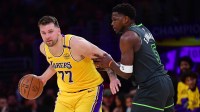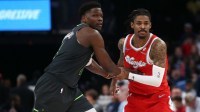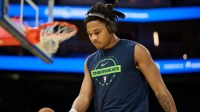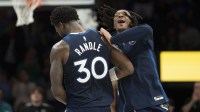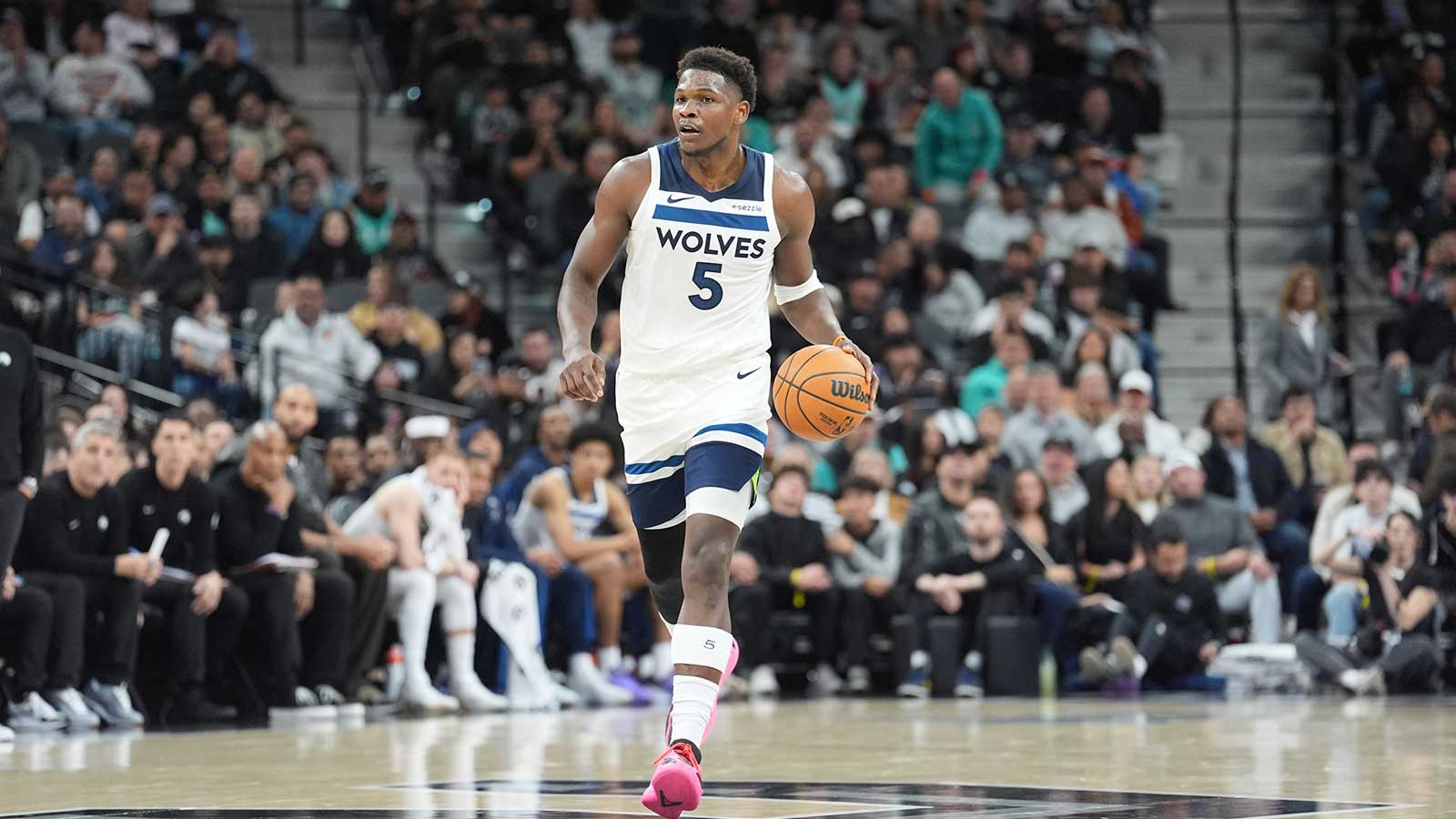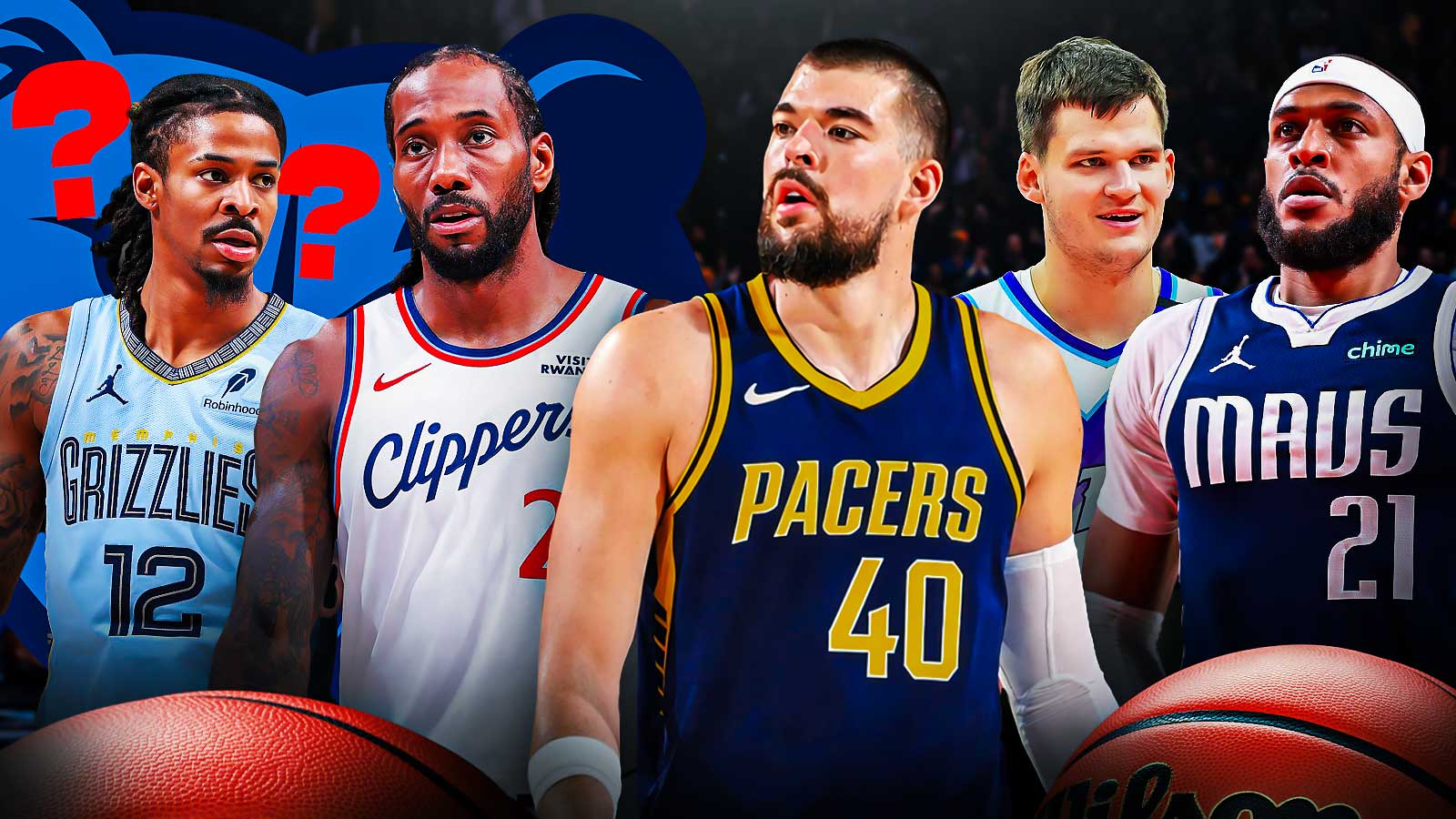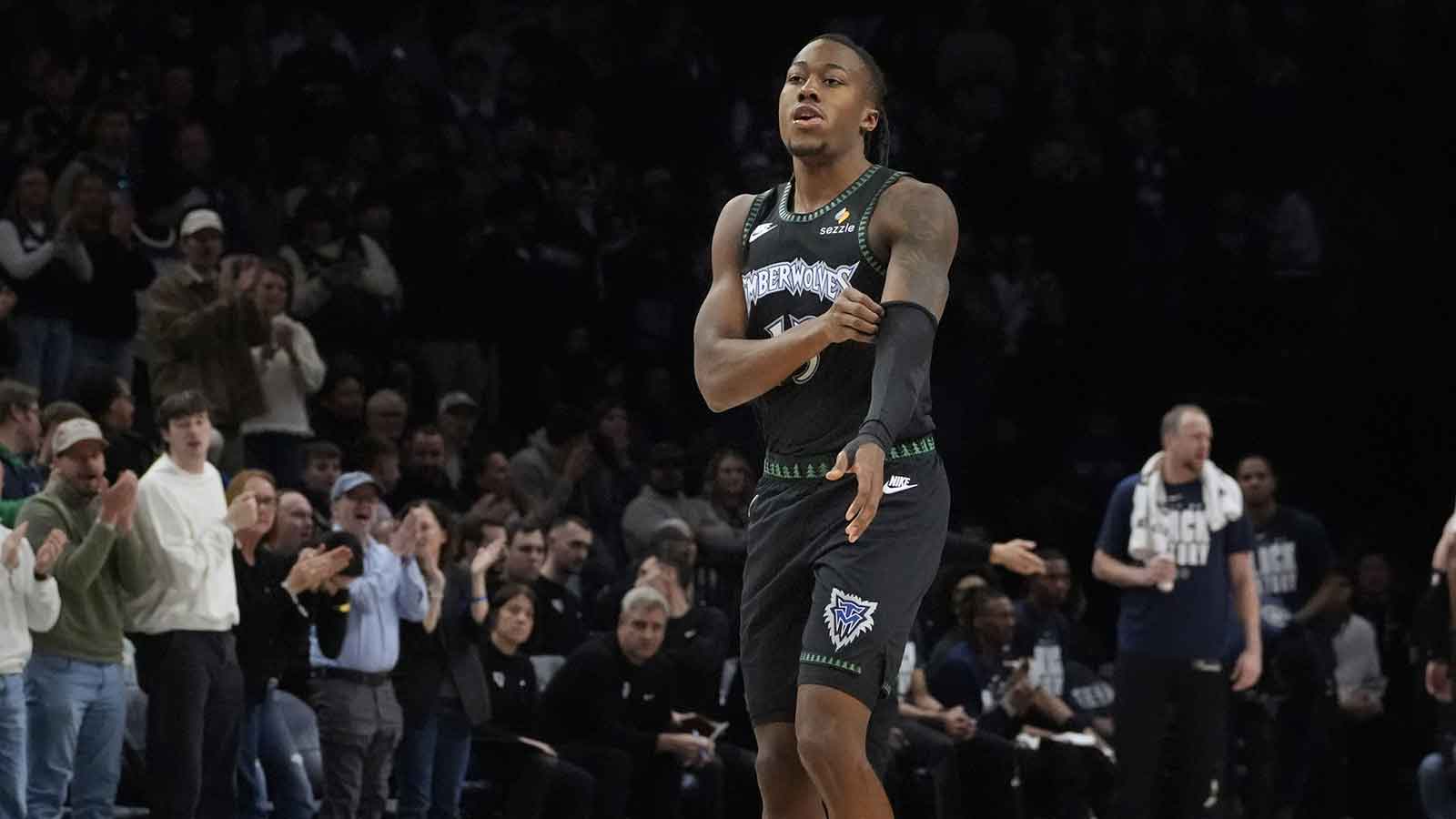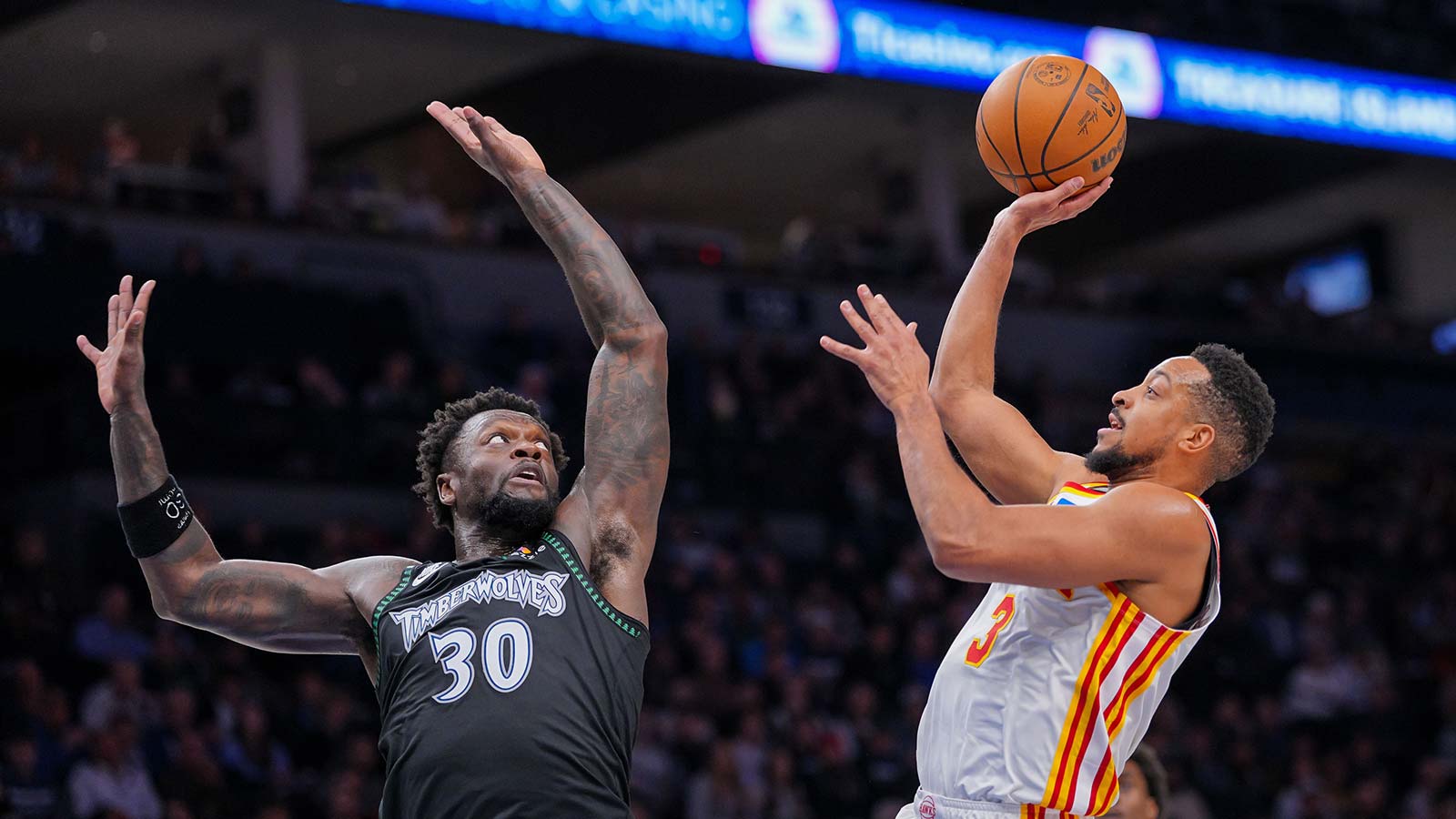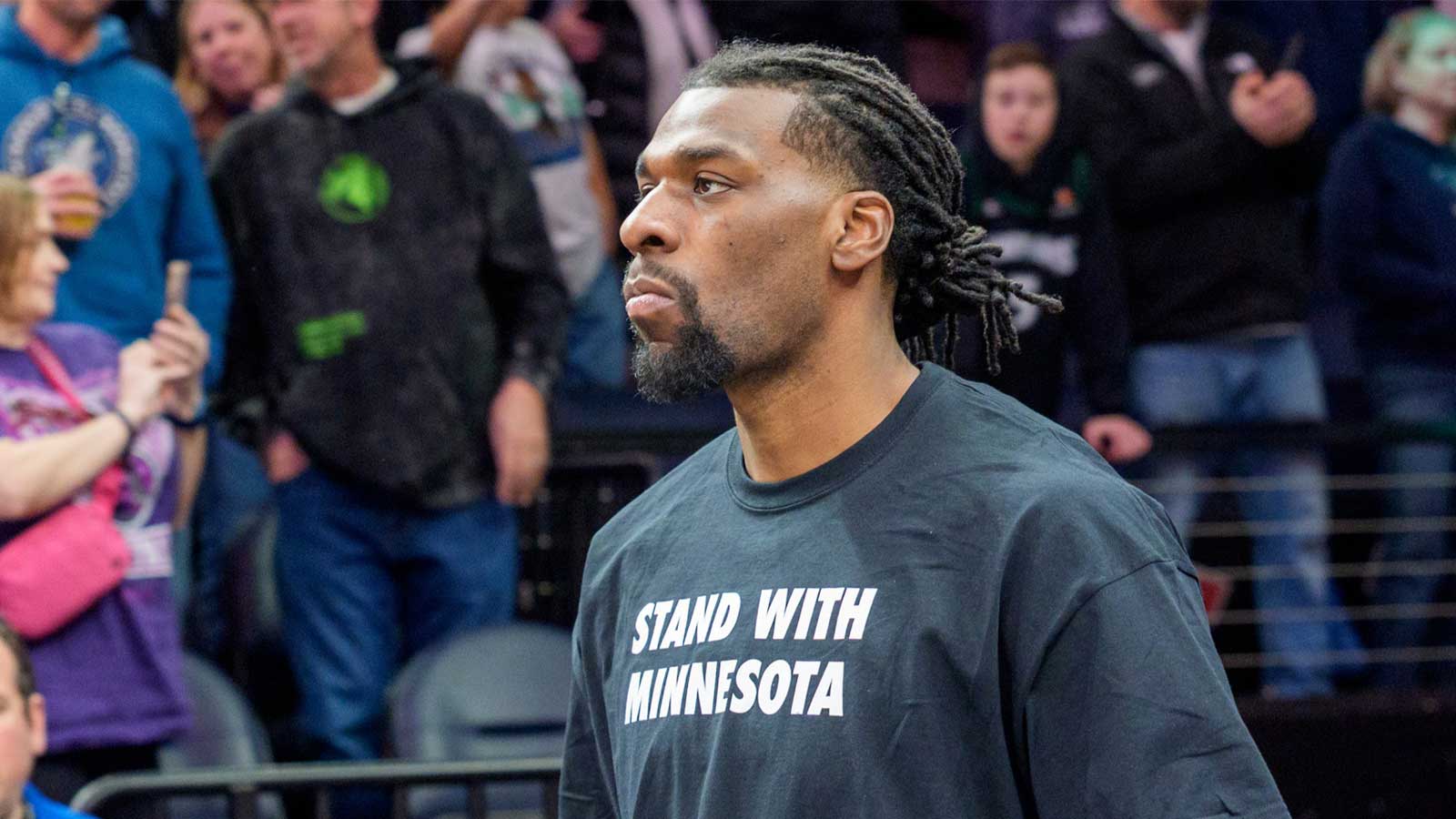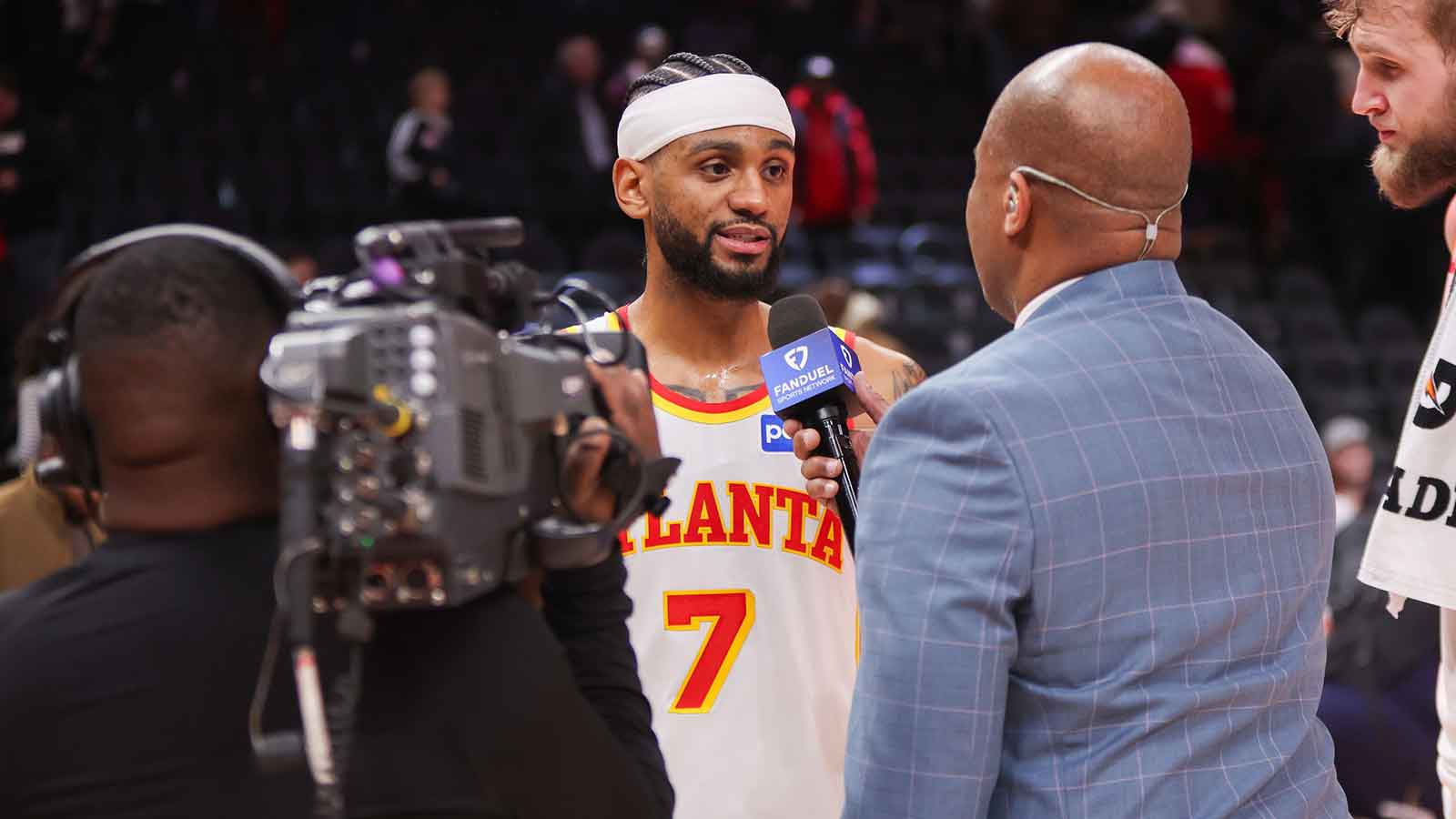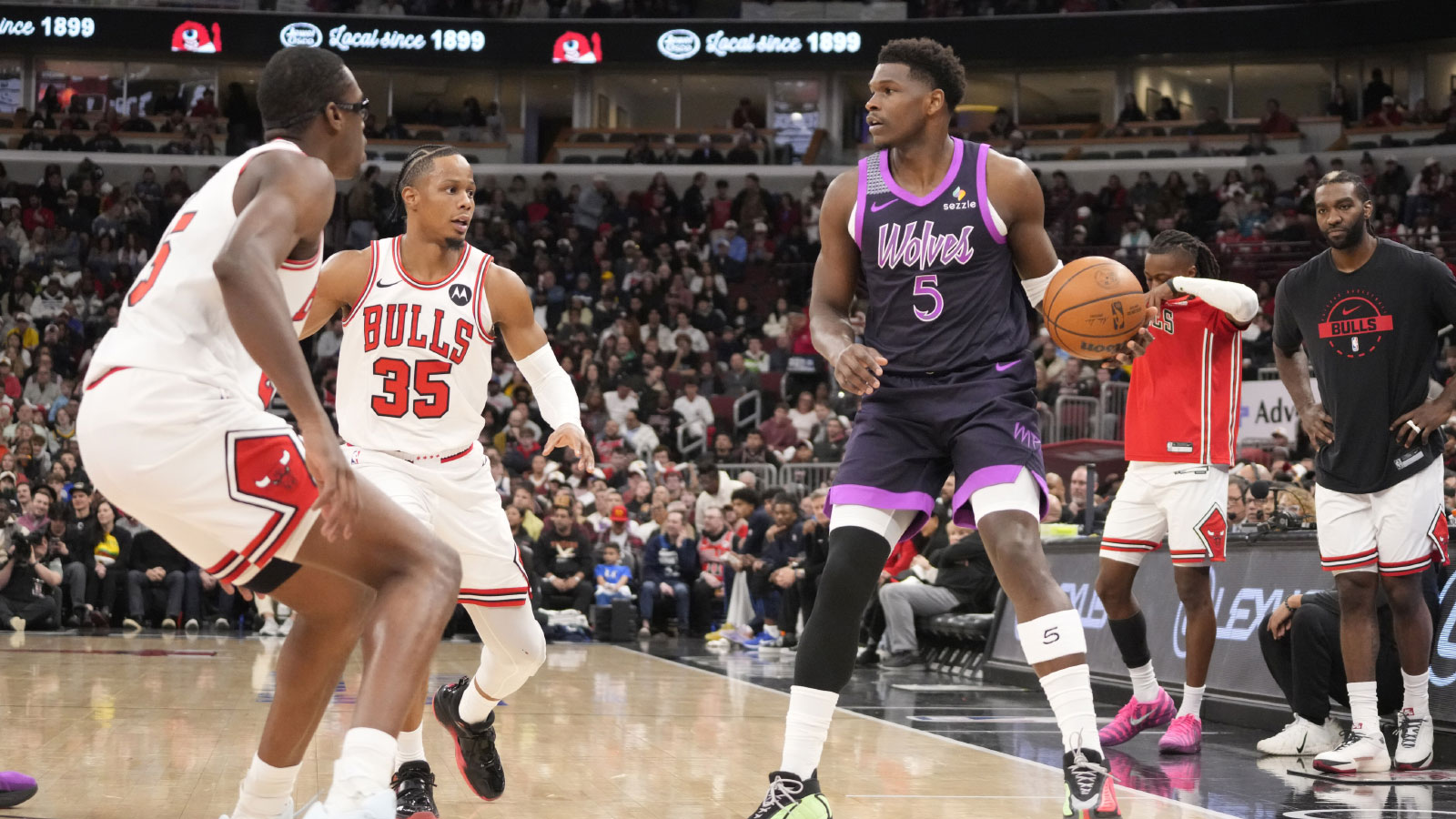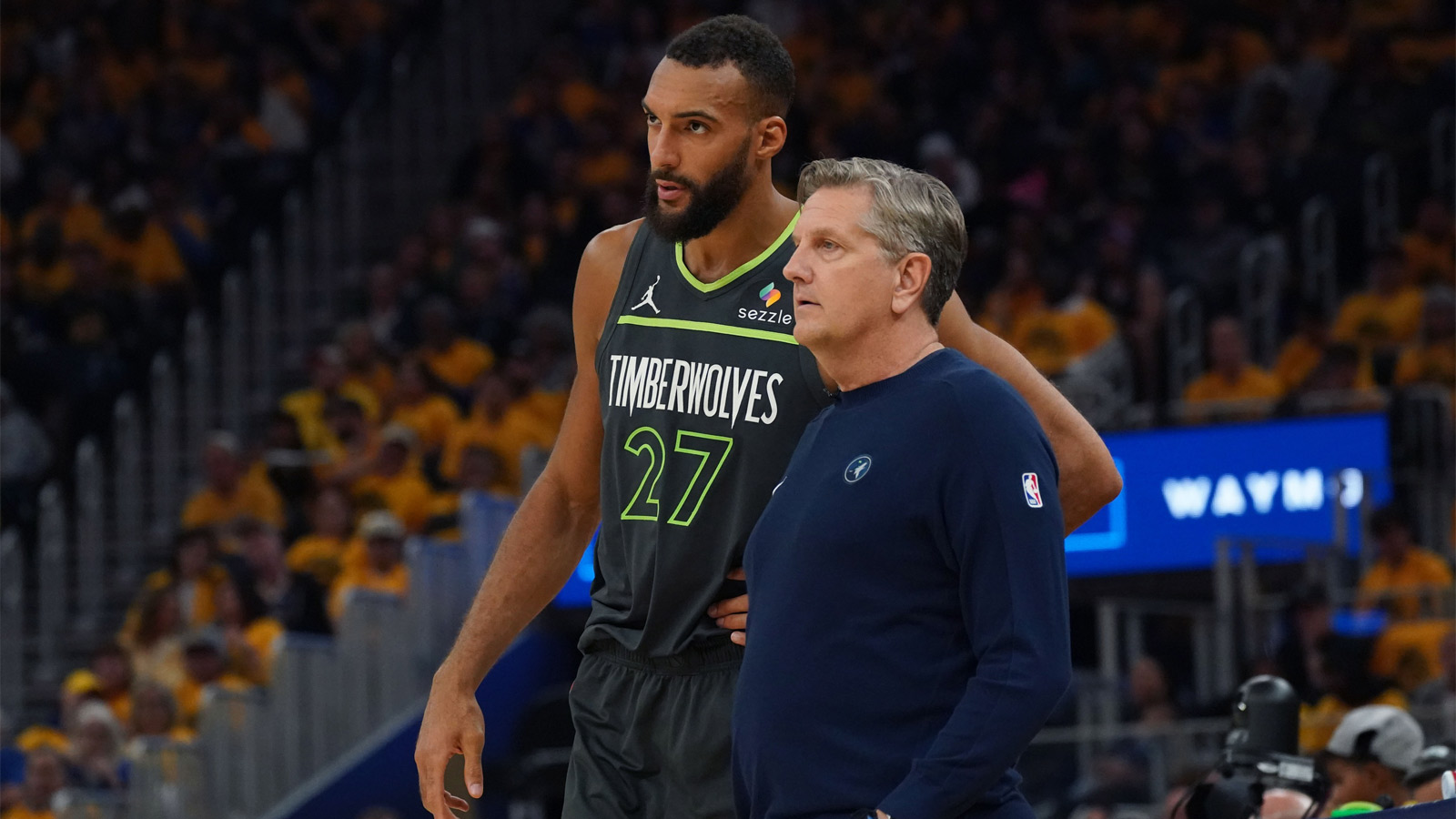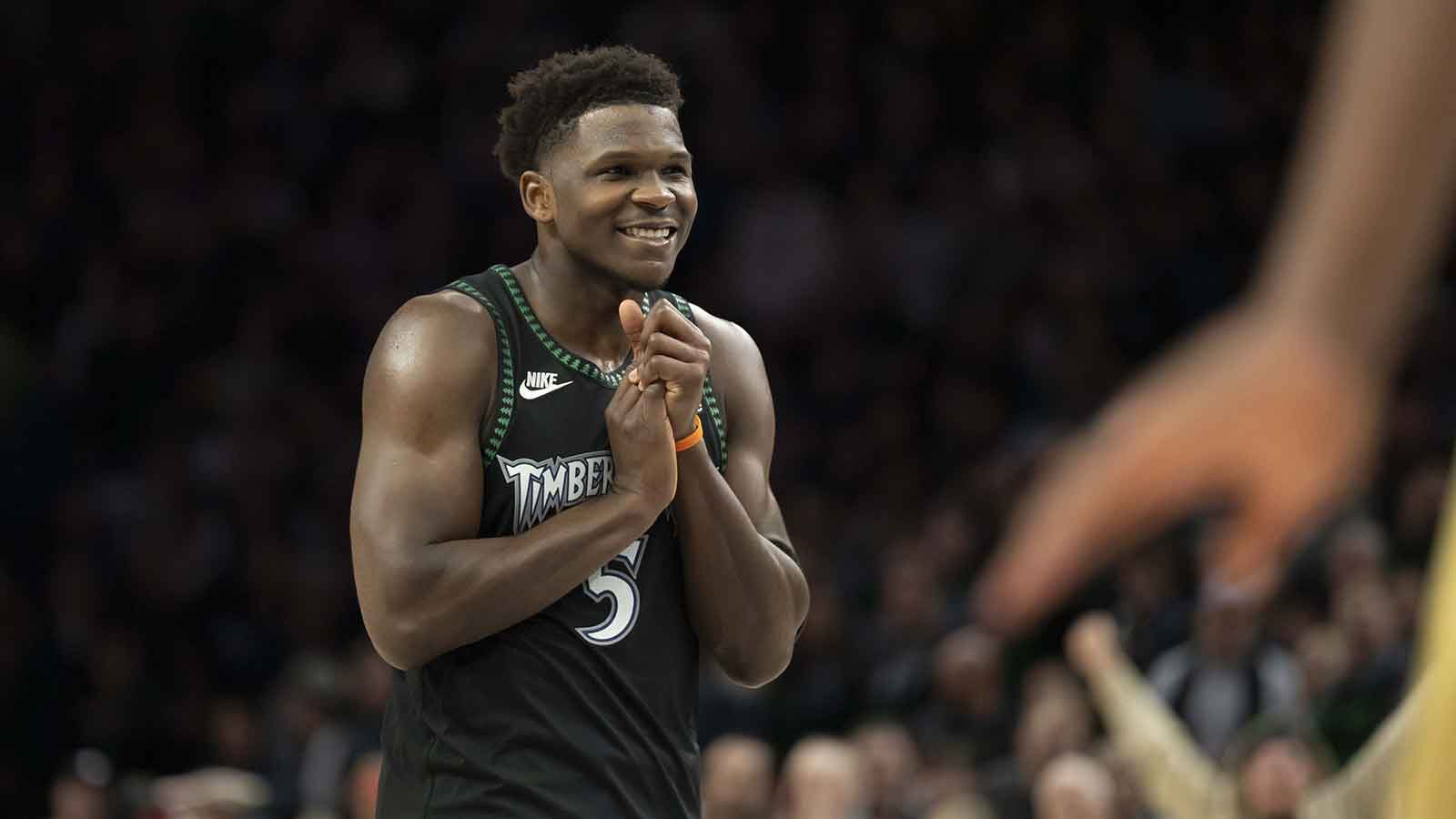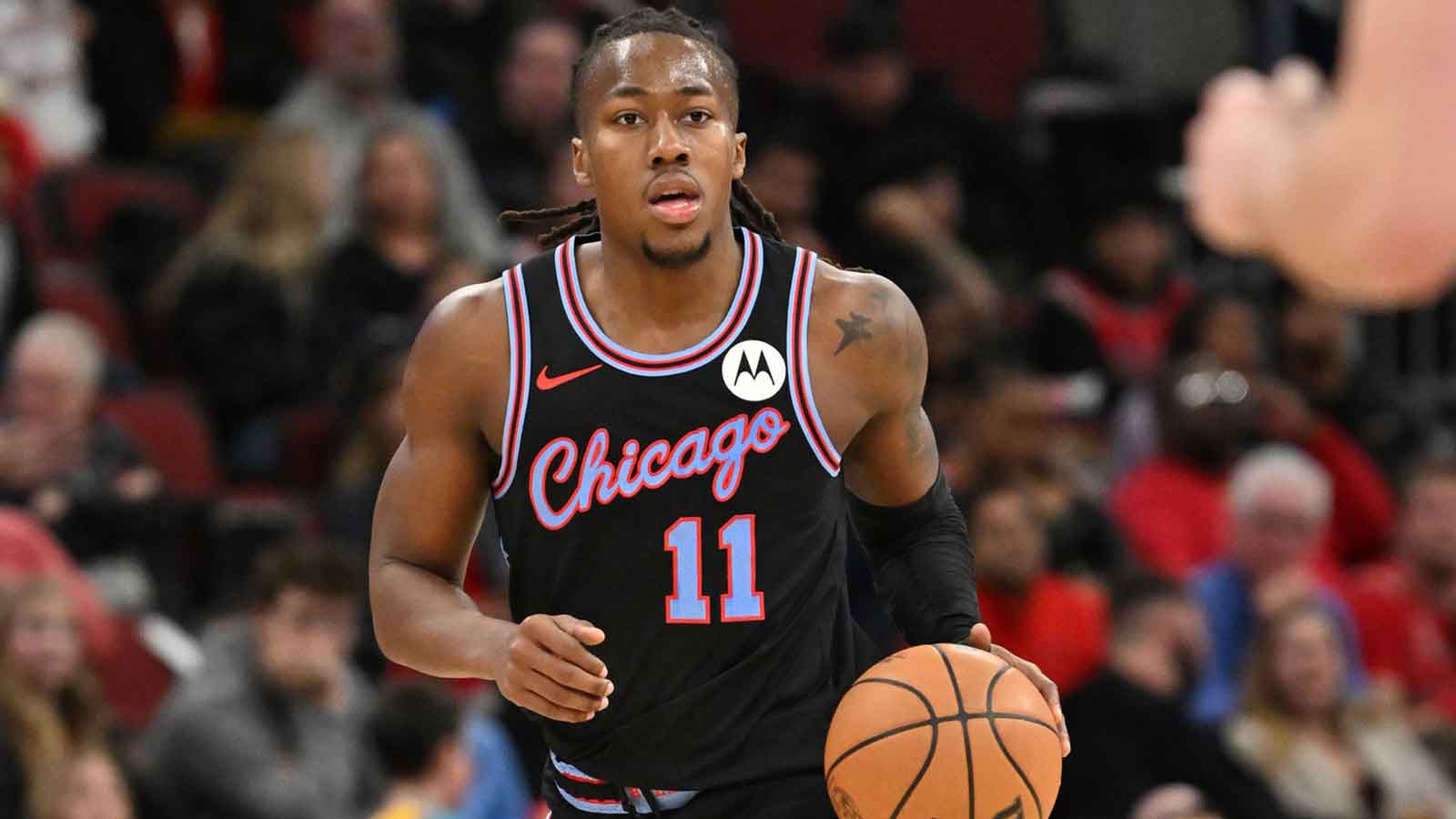Make no mistake: The Minnesota Timberwolves still want to win as soon as possible. Training camp tipped off on Wednesday with the Wolves thirsty as ever for success, hopeful the borderline disaster of Rudy Gobert's debut season in Minnesota will be a blip on a path toward sustained contention that starts in 2023-24. It better. Unless they vault toward the top of a loaded Western Conference this season, big changes loom on the Wolves' horizon—and could come before the February trade deadline.
Minnesota will likely duck the tax this season, but that won't stop a real financial crossroads from coming in 2024-25. Gobert, Karl-Anthony Towns, Anthony Edwards, Naz Reid and Nickeil Alexander-Walker are set to make over $147 million combined next season, more than $5 million above the projected salary cap. That number doesn't include Jaden McDaniels' massive and well-deserved raise, either by extension before the October 23rd deadline or a new contract in restricted free agency next summer.
Regardless, McDaniels' next salary is bound to push the Wolves—as currently constructed, that is—comfortably past the $172 million luxury tax threshold in 2024-25, and that's only accounting for six players. Mike Conley will be a free agent next July; same goes for Kyle Anderson. Offseason additions Shake Milton and Troy Brown Jr. combine for $9 million of non-guaranteed salary. Maybe Josh Minott and Leonard Miller, locked into cheap second-round contracts, will be ready for rotation minutes next season, but that rosy projection won't fix Minnesota's major spending problem.
Are new owners Marc Lore and Alex Rodriguez ever going to pay a tax bill that could approach $100 million, let alone for a roster that almost certainly can't win the Wolves their first title in franchise history? The answer is as obvious as it is depressing, an unfortunate reality that can be traced directly back to last summer's calamitous trade for Gobert. It's not the reckless, precedent-breaking haul Tim Connelly and company sent to the Utah Jazz in exchange for Gobert that has Minnesota stuck between this financial rock and a hard place, either. The two years and $90 million left on his contract past this season does that all by itself.
Barring an unbelievable turnaround this season, it'll take years for the Wolves get all the way out of the hole they so excitedly dug for themselves. That arduous climb will definitely be more manageable the sooner it's begun, though, the main reason why Towns might be entering his final season in Minnesota.
1 potential Timberwolves trade candidate entering 2023-24 NBA training camp
Karl-Anthony Towns
Towns' nagging calf strain limited the Timberwolves' twin towers to just 27 games last season. Concerns about the Towns-Gobert fit defensively persist, especially against top-flight competition, but didn't come to fruition during their brief time on the floor together.
Minnesota posted a 105.6 defensive rating when its star seven-footers played simultaneously, over four points per 100 possessions stingier than the Cleveland Cavaliers' league-leading mark, per NBA.com/stats. Outlier opponent shooting luck didn't drive that dominant defense. The Wolves just forced teams into poor 57.3% accuracy at the rim, per Cleaning the Glass, and barely fouled—two long-time hallmarks of defenses that feature Gobert manning the middle.
Towns' self-proclaimed distinction as the “greatest shooting big man ever” was supposed to curb mitigating effects of shoehorning another center next to him. That didn't happen. Minnesota managed an offensive rating of just 106.2 with Towns and Gobert on the court, over two points per 100 possessions worse than the bottom-ranked Charlotte Hornets'. Those Wolves lineups coughed up turnovers, barely got to the free throw line and assisted on far fewer scores than normal, offensive shortcomings to be expected given their tandem lack of high-level spacing and playmaking.
Towns fancies himself a basketball unicorn, and has the sheer size and surface-level skill set to be deserving of that label. But there are clearly diminishing offensive returns to pairing him with a non-shooting, non-passing, paint-bound center like Gobert, and Towns still hasn't proven he can anchor a playoff-worthy defense by himself.
Is it any surprise a frontcourt of Gobert and the perpetually undervalued Kyle Anderson—not exactly a sniper, by the way—emerged as the Wolves' most viable two-way option as 2022-23 wore on? Just as telling, or damning, is that Minnesota hemorrhaged points when Anderson played next to Towns with Gobert on the bench.
Towns is simply a tough fit for any team with aspirations of competing deep into the playoffs. The league at large is already coming around to that realization, and will only get there sooner the more time Minnesota spends trying to fit the square peg of he and Gobert into a round hole. Even a successful regular season for the Wolves—say, surpassing their 44.5 over-under by a few wins and securing a top-six seed in the West—won't change what seems inevitable in the playoffs. A team spending so much of the on Towns and Gobert won't win a championship, and they're only getting more expensive from here.
The longer Minnesota waits to make Towns readily available via trade, the lower his already-waning value on the open market will prove. Even if the Timberwolves' odds of ever hoisting the Larry O'Brien Trophy with Gobert in tow are exceptionally long, at least biting the bullet early on Towns could recoup a portion of the draft assets they gave up for the Stifle Tower.
Towns won't fetch multiple first-rounders and a high-end prospect, though. Trading him would be most about Minnesota breaking from the luxury-tax shackles that await next season, re-prioritizing its team-building structure around Edwards and McDaniels. Locking in Reid this summer guards against the Wolves taking a huge step back without Towns, too.
It'd still be pretty stunning if Minnesota seriously engaged in trade talks for Towns this season, at least until its hand was essentially forced by the standings. For sake of the Wolves' long-term title hopes, though, there's no denying the most prudent approach to moving Towns is the preemptive one.




